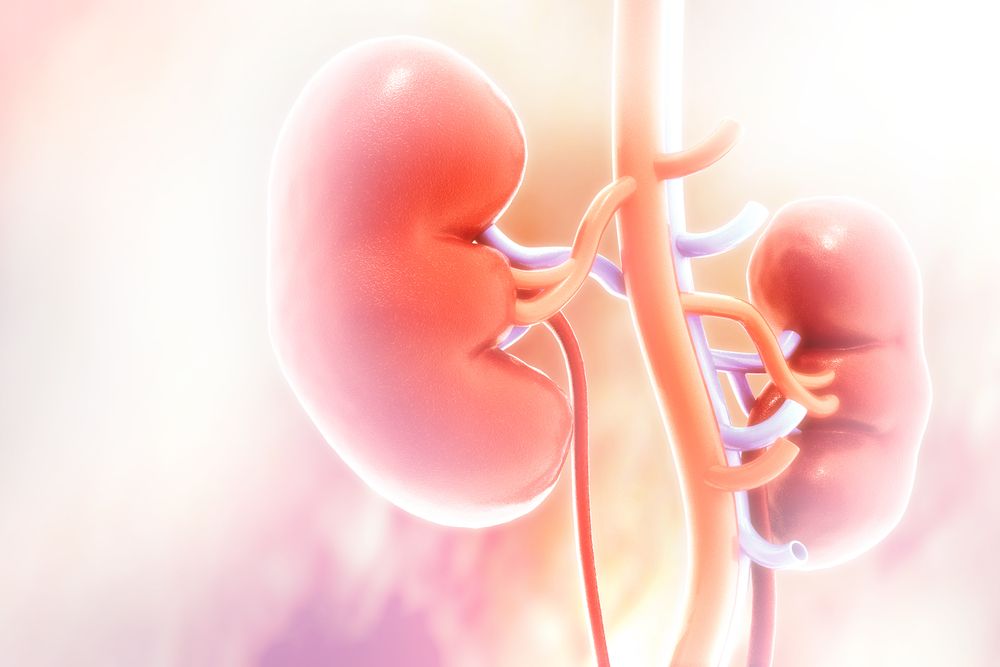Article
Study Compares Mortality Risk Among Kidney Transplant Patients in US by Diabetes Status
Author(s):
An analysis of data from more than 250k kidney transplant patients details the increased risk of mortality and graft failure according to diabetes status among these patients.

New research from a nationwide analysis of first-time kidney transplant recipients in the US is providing insight into the long-term mortality of these patients based on diabetes status.
Results of the study, which included data from more than 250,000 recipients who underwent transplant from 2000-2018, offer an overview of the survival probabilities and adjusted mortality risk among patients with type 1 diabetes, type 2 diabetes, and nondiabetes-related end-stage kidney disease.
“Despite improved overall survival of the transplant population, disparities in mortality among patients without diabetes and those with T1D/T2D remained throughout the study period. Transplant recipients with T1D and T2D had a 95% and 65% increased risk of mortality, respectively, as compared with those with no diabetes,” wrote investigators.
With an interest in developing a greater understanding of how diabetes status influences prognosis among kidney transplant recipients, investigators from Emory University and the US Centers for Disease Control and Prevention designed the current study as an analysis of data from within the US Renal Data System. Assessing a period from 2000-2018, investigators hoped to use multivariable-adjusted Cox regression models to determine risk of death associated with type 1 and type 2 diabetes compared to patients without diabetes.
During the study period, 254,188 patients underwent a first-time single kidney transplant. For the purpose of analysis, investigators used ICD codes for determining diabetes status as a primary cause of end-stage kidney disease. Investigators also planned to assess standardized mortality ratios, relative to the general population, using Joinpoint analysis.
Overall, the study cohort included 20,346 patients with type 1 diabetes, 59,405 with type 2 diabetes, and 174,437 without diabetes. Investigators noted patients with type 2 diabetes were more likely to be male, older, non-Hispanic Black, and have more comorbidities compared to their counterparts with type 1 diabetes and those without diabetes.
Upon analysis, investigators identified 72,175 deaths and 43,006 instances of graft failure. The median survival time was 17.31 (95% CI, 17.10-17.57), 13.95 (95% CI, 13.67-14.15), and 9.73 (95% CI, 9.65-9.83) for patients without diabetes, type 1 diabetes, and type 2 diabetes, respectively. Patients without diabetes had the greatest 5-year survival probability (88%) followed by type 1 diabetes (85%) and type 2 diabetes (77%).
In fully adjusted models, relative risk of mortality was greatest among patients with type 1 diabetes (HR, 1.95; 95% CI, 1.99-2.03) and type 2 diabetes (HR, 1.65; 95% CI, 1.62-1.69) than their counterparts without diabetes. Additionally, results suggested risk of graft failure was increased in both diabetes groups but were similar between those with type 1 diabetes (HR, 1.32; 95% CI, 1.28-1.36) and type 2 diabetes (HR, 1.24; 95% CI, 1.18-1.31).
When assessing standardized mortality according to year, investigators pointed out there was a gradual decline among all patient groups. When assessing rates in 2017, results indicated rates were greatest among those with type 1 diabetes (2.38; 95% CI, 2.31-2.45) followed by those with type 2 diabetes (6.55; 95% CI, 6.07-7.06) and those without diabetes (3.82; 95% CI, 3.68-3.98).
“In the USA, mortality among people receiving a kidney transplant has declined since 2000 but remains approximately twofold to more than sixfold higher compared with the general population with highest rates among diabetes-related ESKD,” investigators wrote.
This study, "Long-term mortality among kidney transplant recipients with and without diabetes: a nationwide cohort study in the USA,” was published in BMJ Open Diabetes Research & Care.





